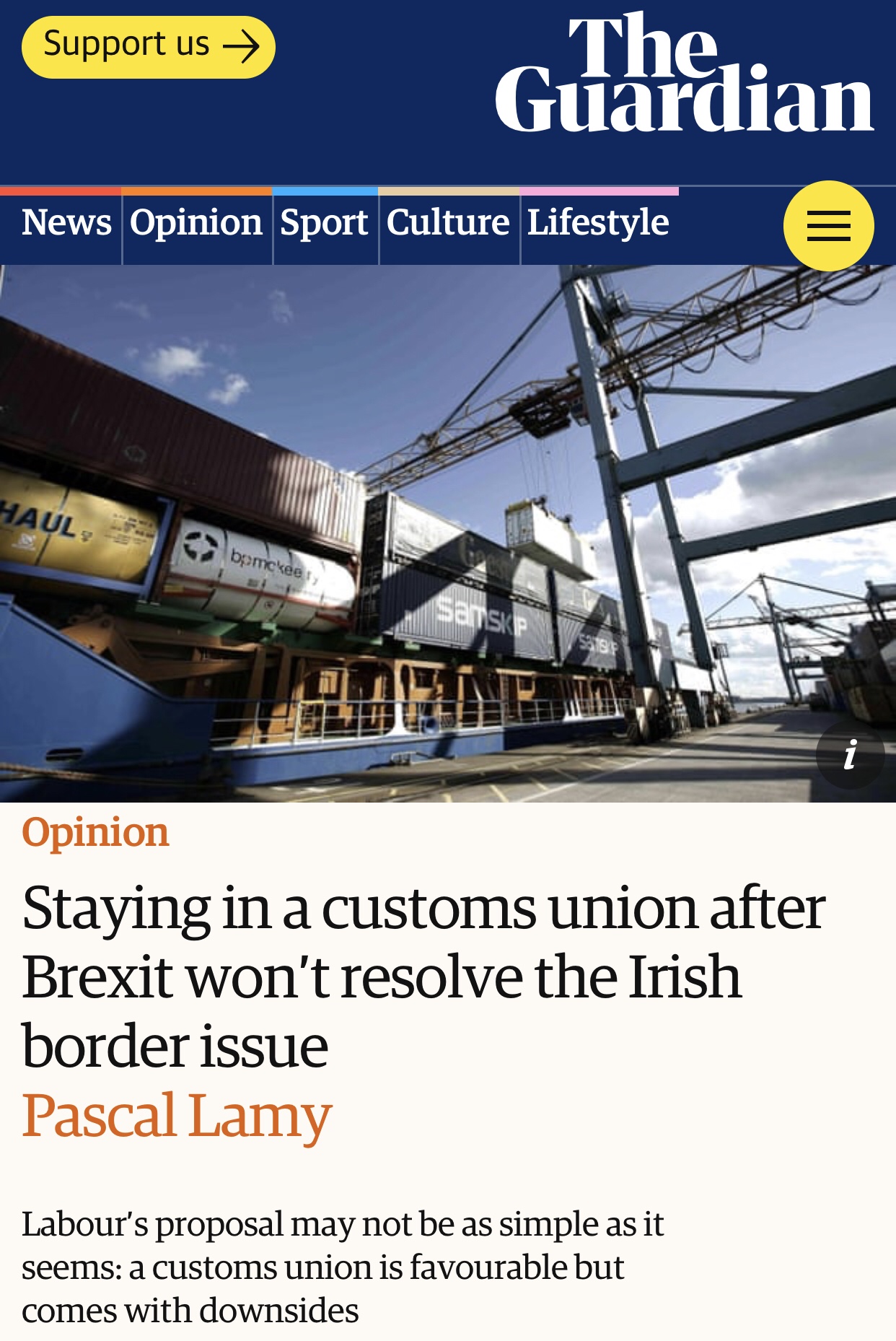Staying in a customs union after Brexit won’t resolve the Irish border issue
Former DG of WTO Pascal Lamy, explains exactly why a Customs Union is not solving all of UKs challenges post-Brexit. A thing I have argued the last two years. A Customs Union is about tariffs, it will not remove non-tariff barriers.
Lamy writes: “Labour’s proposal may not be as simple as it seems: a customs union is favourable but comes with downsides”.

“At the heart of the Labour proposal is to stay in a customs union and continue to have a say over EU trade policy. Some have called this a “soft Brexit” but, as with everything in this debate, on closer inspection it is not quite so simple.
We should all remember that from 1957 to 1993, the European Economic Community was a customs union with internal borders. They were removed only when enough evidence of harmonisation or mutual recognition of regulations was there. The single market without borders is about regulatory homogeneity. Leaving the single market reintroduces a border – the thickness of which depends on the degree of regulatory divergence. The customs union is about the common external tariff. The single market is about common regulations.
Clearly, staying only in a customs union would not be enough to solve the Irish border question. To take just one commonly cited example: if the UK remains in the customs union with the same common external tariff but imports chlorinated poultry from the US, there has to be a border, because the EU does not accept the marketing of chlorinated poultry. This is a rule of the single market”.
 Pascal Lamy is former director-general of the WTO and former European trade commissioner
Pascal Lamy is former director-general of the WTO and former European trade commissioner
“The EU is unlikely to accept a request from the UK that it should have a say over the EU’s trade agreements. Article 207 of the Lisbon treaty makes clear that the common commercial policy is exclusive to the EU’s direction. Turkey, which is in a partial customs union with the EU, has to follow EU trade agreements with third countries but has no say on them. The reality is that in a customs union all the power would rest with the EU, with the UK as a follower.
The EU is the world’s largest trading bloc. It has successfully negotiated with more than 70 countries around the world. It is understandable that the UK does not wish to say goodbye to the influence and clout that being part of this bloc provides. But there is little point pretending that there is a simple or cost-free way of retaining the benefits of this while leaving the EU.
Being in a customs union might be better than not being in a customs union, but it would come with very real downsides too. It is important that these are also considered”.
You can read the article here: Staying in a customs union after Brexit won’t resolve the Irish border issue
Source: The Guardian
You must be logged in to post a comment.